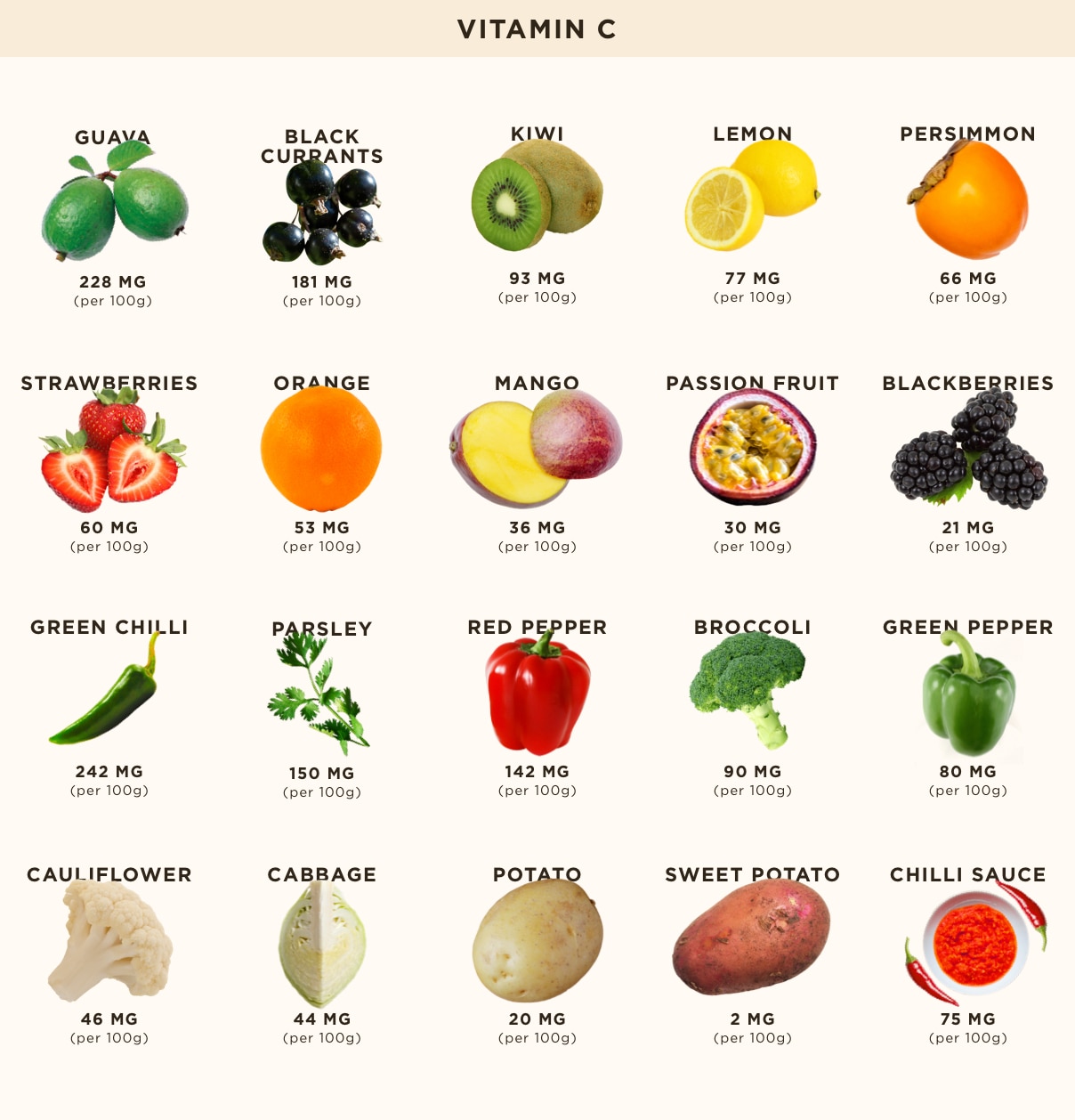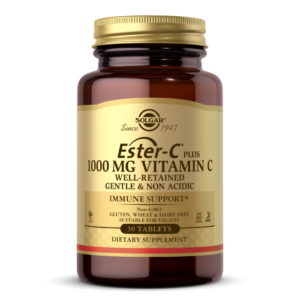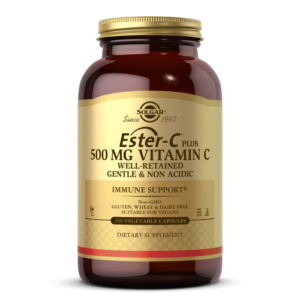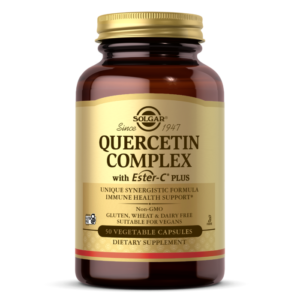Key Takeaways:
- Vitamin C is an antioxidant that helps fight free radicals to help protect against oxidative stress, and is important for the functioning of white blood cells.
- Your body cannot make vitamin C on its own, therefore it must be replenished regularly through external sources such as your diet or supplements. There are many fruits and vegetables that are rich in vitamin C.
Vitamin C is one of the most commonly taken supplements in the US1 – but what does it really do for the immune system? Which foods are high in vitamin C? And is it possible to take too much?
Let’s take a closer look at this well-loved vitamin.

History of Vitamin C
Scurvy is not something we hear about very often, and that is all thanks to vitamin C. Before the discovery of vitamin C, scurvy was a common disease that occurred in malnourished individuals. In the 1700s, it was very rare to have foods with vitamin C – such as colorful fruits and vegetables — aboard the ships that carried passengers and sailors on their long journeys to the Americas and elsewhere.
However, Scottish surgeon James Lind gave lemon juice to sick sailors to see if it improved their ailments on the ship. By 1795, Lind had nearly eliminated scurvy in the British naval fleet. It wasn’t until many years later in 1928 that Hungarian chemist Albert Szent-Gyorgi isolated vitamin C.
Vitamin C, also known as ascorbic acid, was the first vitamin to be chemically produced. Szent-Gyorgi eventually went on to win the Nobel Prize for his groundbreaking discovery, and vitamin C is possibly the most widely used supplement today.
What does Vitamin C do for the immune system?
Vitamin C is an essential micronutrient for humans,2 but the body cannot make vitamin C on its own. You need to consume vitamin C through external sources, such as through your diet or supplements. Like the B-complex vitamins, vitamin C is water-soluble. Because our bodies don’t store water-solubles vitamins well, vitamin C needs to be replenished every day.3
Vitamin C, as ascorbic acid, is on the World Health Organization Essential Medicines List because it is needed by so many parts of the body. Vitamin C is involved in collagen formation which contributes to healthy skin and connective tissue.*4
Vitamin C helps support the immune system by supporting various functions* It is a potent antioxidant and helps fight free radicals that can cause oxidative stress.* It also supports the functioning of white blood cells, which are major components of the immune system.*
Read more: Ways to Support Your Immune Health
Which foods are high in Vitamin C?
Natural sources of vitamin C:
Eating foods that are rich in vitamin C is the first way you can help support your immune system. Natural sources of vitamin C include citrus fruits such as oranges, grapefruits, lemons, and limes,5 as well as less common fruits like pineapple, kiwi, and watermelon.6 Many vegetables are also rich sources of vitamin C, including broccoli, spinach, green and red bell peppers, sweet potatoes, and tomatoes.*

*Chart information from https://ods.od.nih.gov/pubs/usdandb/VitaminC-Content.pdf
What is the difference between Ester-C® and Vitamin C?
If you’ve ever stood in front of a vitamin C display at the pharmacy, you may be overwhelmed by the seemingly endless array of options. What is the difference between Ester-C® and regular vitamin C?
In short, vitamin C is acidic and may cause stomach irritation for some people. Ester-C® was created as a response to this problem; it is a buffered, non-acidic, well-absorbed version of vitamin C that is gentler on the stomach.
During the production of Ester-C®, vitamin C metabolites are also created that help to enhance the retention of vitamin C in your body.* Studies show that Ester-C® increases vitamin C levels in white blood cells for up to 24 hours or up to two times longer than regular vitamin C.*
Solgar® offers a variety of Ester-C® products, such as Ester-C® Plus 500 mg, Ester-C® Plus 1000 mg, or Quercetin Complex with Ester-C® Plus.
Read more: How Does the Immune System Work?

GET THE LATEST UPDATES AND EXCLUSIVE DEALS WHEN YOU SIGN UP FOR OUR NEWSLETTER!
What happens when you have too much Vitamin C?
According to the Council for Responsible Nutrition, vitamin C has very low toxicity and is not believed to cause serious adverse effects if you have taken too much. The most common complaints after high intakes of vitamin C are diarrhea, nausea, abdominal cramps, and other gastrointestinal effects related to the unabsorbed vitamin C in the intestine.
C for yourself
Vitamin C plays an important role in supporting your immune system and helping your body maintain good health.* It must be replenished daily through food or supplements and is found in a variety of fruits and vegetables. Solgar® also offers various forms of vitamin C and other immune-supporting supplements, which you can explore here.
Also, don’t forget to sign up for our email newsletter! (Don’t worry – we know how busy your inbox can get, so we won’t bombard you with emails.)
**These statements have not been evaluated by the Food and Drug Administration. These products are not intended to diagnose, treat, cure, or prevent any disease.
The information provided on this site is intended for your general knowledge only and is not a substitute for professional medical advice or treatment for specific medical conditions. Always seek the advice of your physician or other qualified healthcare provider with any questions you may have regarding a medical condition. The information on this website is not intended to diagnose, treat, cure, or prevent any disease. Never disregard medical advice or delay in seeking it because of something you have read on the Solgar® site.





